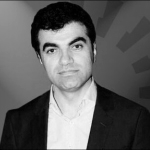Whether Osman Kosa was an employee at the Turkish consulate or working at the Iran desk of Turkey’s national spy agency, as Amberin Zaman suggested in a report published by Al-Monitor, doesn’t make any difference to the matter. It was Kurdistan - not Turkey - that was targeted in this attack. That is why the co-leaders of Peoples’ Democratic Party (HDP) did the right thing when they concisely condemned the attack on ‘diplomats’ in a ‘place away from war.’
The murder of Kosa in Erbil upset the Kurdistan Region’s serious efforts to help resume the Kurdistan Workers’ Party (PKK) -Turkey peace process. Much effort was made and good conditions were being created, but the attack in Erbil has now pushed the Kurdistan Region to tighten its own security instead of making peace in its neighbors.
The Erbil attack has worked to neutralize [PKK leader] Abdullah Ocalan’s recent messages calling for political adaptation to allow negotiation to resume, and fundamentally undermined the political position of Kurds in Istanbul. The Republican People's Party (CHP) was preparing to recognize some Kurdish rights in its party manifesto after Kurdish voters played a decisive role in the Istanbul election.
But even the CHP, like other regional and international parties, have denounced the attack on the Turkish consulate staff in Erbil.
Attacks of this sort will serve those who disrespect the Kurdistani flag, remove the word Kurdistan from old and new books in Turkey, and the like.
[PKK co-founder] Cemil Bayik’s article, published in the Washington Post, said that now is the time for peace with Turkey. Calling for an end to war between the PKK and Turkey, it is a step in the right direction. Maintaining this course serves the interests of the PKK, Turkey, and all Kurds.
Kurdish experts were saying a month ago that Kurds had regained their strong position; they hoped it wouldn’t be sabotaged. But on July 17, it was Kurds themselves who damaged it.
By seeking stability and strength, the Kurdistan Region will be able to reinforce its position and that of all Kurds, rather than seeing foreign armies being dragged into its territory or seeing attacks launched on restaurants within the Kurdistan Region in broad daylight. A safer Kurdistan Region contributes to the security of its neighbors. The stronger the Kurdistan Region’s model of governance appears, the more strength it will give to all Kurds.
The PKK has neither claimed responsibility for the attack in Erbil, nor denied it. The Kurdistan Regional Government (KRG) is yet to disclose the results of its investigation and has not apportioned blame, although regional and international media outlets are pointing the finger at the PKK. The attacks in Erbil have angered both the government and the people; those who look at the Kurdistan Region as a ‘nest of hope’ for Kurds will share the same sentiments.
The Democratic Union Party (PYD) has often emphasized two things: we have not, and will not, allow attacks to be waged on our territory against Turkey, and we will not allow any party to operate outside the framework of the Syrian Democratic Forces (SDF) in western Kurdistan or in northern Syria.
If this is true there, it is even truer for a constitutional entity like the Kurdistan Region – something the PKK should acknowledge.
This incident shows that the Kurdistan Region needs a specific law to regulate the work of diplomats, consulates and diplomatic envoys in the Region, within international guidelines.
Meanwhile, Turkey and the Kurdistan Region should understand that whenever efforts are underway to make peace, there will be flagrant efforts to disrupt it – often with coordination between local and regional elements.
Turkey’s ruling Justice and Development Party (AKP) has two means at its disposal to regain its strength among its supporters: improving economic conditions and getting close to Kurds. If tackled sensitively, all problems will be resolved through peace. There is more of an urge for peace at times of war and bloodshed.
Ako Mohammed is the CEO of Rudaw Media Network. The views expressed in this article are those of the author and do not necessarily reflect the position of Rudaw. |









Comments
Rudaw moderates all comments submitted on our website. We welcome comments which are relevant to the article and encourage further discussion about the issues that matter to you. We also welcome constructive criticism about Rudaw.
To be approved for publication, however, your comments must meet our community guidelines.
We will not tolerate the following: profanity, threats, personal attacks, vulgarity, abuse (such as sexism, racism, homophobia or xenophobia), or commercial or personal promotion.
Comments that do not meet our guidelines will be rejected. Comments are not edited – they are either approved or rejected.
Post a comment